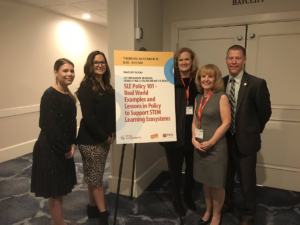WITH ITS INCEPTION IN 2015, THE STEM LEARNING ECOSYSTEMS COMMUNITY OF PRACTICE, SLECOP, IS A MODEL TO REIMAGINE EDUCATION AND CAREER PATHWAYS FOR THRIVING COMMUNITIES.
THE GLOBAL PANDEMIC OF 2020 FORCED OUR NATION TO REEXAMINE ISSUES THAT HAVE BEEN PRESSING CHALLENGES WITHIN COMMUNITIES FOR DECADES. WE BELIEVE ECOSYSTEMS OFFER A MODEL TO DO THIS WORK MOST EFFECTIVELY.
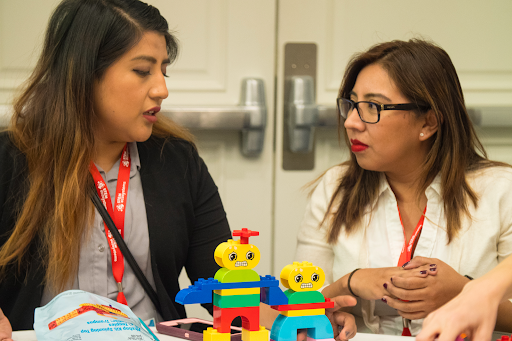
Ecosystems have always been positioned to provide collaborative solutions that keep community at the center of learning and work.
Resilience and Resolve: The Power of STEM Learning Ecosystems, will offer discussions, workshops and resources that support the development and scaling of Ecosystem models.
Resilience and Resolve: The Power of STEM Learning Ecosystems, will offer discussions, workshops and resources that support the development and scaling of Ecosystem models.
We May Be Far Apart… But We’ll Still Be Connected!
Taking our virtual convening to the next level with the interactive platform, VirBELA. It will include real networking opportunities! You will be able to create your own avatar and attend happy hours with friends, walk around the campus and even go to the beach with your team.
Don’t miss out on this innovative convening!
OR
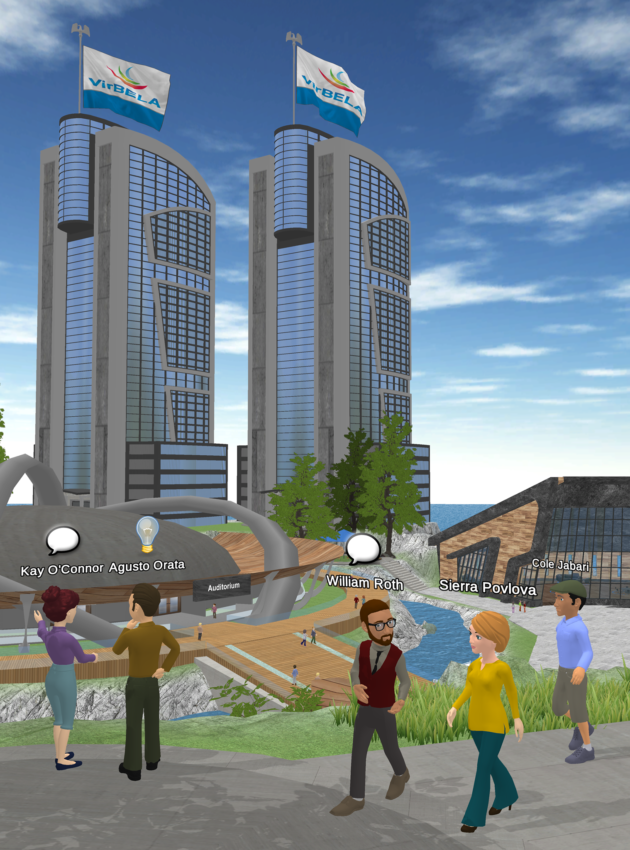
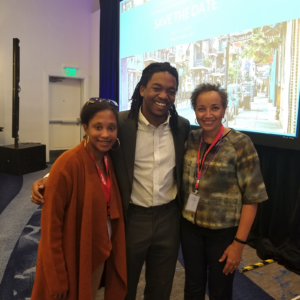 STRONG CROSS-SECTOR PARTNERSHIPS
STRONG CROSS-SECTOR PARTNERSHIPS
Ecosystems have cultivated diverse cross-sector partnerships among all STEM stakeholders, including: families; pre-K-12 education; business and industry; postsecondary education institutions; non-profit and community based organizations; STEM-rich and cultural institutions (e.g. science centers, museums); and government.
All community partners are included in the design of learning and the spaces in which learning happens, including: schools, libraries, parks, businesses, out of school partners, government, museums, cultural spaces, nonprofits, and other community based organizations. Ecosystems fundamentally believe that learning happens everywhere and all partners have a role to play.
Ecosystems keep equity central to all that they doing, ensuring anti-racist policies exist within all community partner organizations.
SYSTEMS THAT SUSTAIN THE WORK
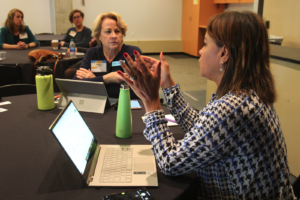 Ecosystems establish infrastructure within communities that sustain the work. This includes strong governance models amongst cross-sector partners, clear leadership roles, internal and external systems of communication and champions for the work.
Ecosystem partners are clear about the common vision for their work. Ecosystem partners also understand their role within the system and contribute their resources for the good of the greater community. Partners also benefit from participating in Ecosystem work, making their home institution stronger in return.
Systems are built with the central belief that equity, access and opportunity be available to all learners and families. Systems are also created with safety, mental, physical and emotional health at the center of all learning, regardless of the space.
Ecosystems establish infrastructure within communities that sustain the work. This includes strong governance models amongst cross-sector partners, clear leadership roles, internal and external systems of communication and champions for the work.
Ecosystem partners are clear about the common vision for their work. Ecosystem partners also understand their role within the system and contribute their resources for the good of the greater community. Partners also benefit from participating in Ecosystem work, making their home institution stronger in return.
Systems are built with the central belief that equity, access and opportunity be available to all learners and families. Systems are also created with safety, mental, physical and emotional health at the center of all learning, regardless of the space.
ALIGNED TEACHING AND LEARNING
Ecosystems align learning between in-school and out-of-school systems. Ecosystems support learning progressions that move from the classroom to afterschool and summer school programming. Ecosystems prioritize shared professional development that reflects research-based effective teaching practices for educating common students across in and out-of-school providers. Ecosystems understand that learning happens everywhere and leverage partnerships to ensure communities capitalize on all existing assets. Ecosystems have a broad definition of assets. Ecosystems promote social-emotional development and learning as a critical foundation for all learning.MEASUREMENT OF ECOSYSTEM PROGRESS
Ecosystems implement measurement systems to ensure data-driven decision-making and longitudinal measurement of success. Systems measure both progress of student achievement and STEM attitudes, as well as the strength of partnerships and the larger Ecosystem. Ecosystem measurement systems outline clear outcomes, designed by all stakeholders and connected to standards, to embed in all community learning experiences. Ecosystems understand the work is complex and utilizes practices that support both qualitative and quantitative data to view progress.